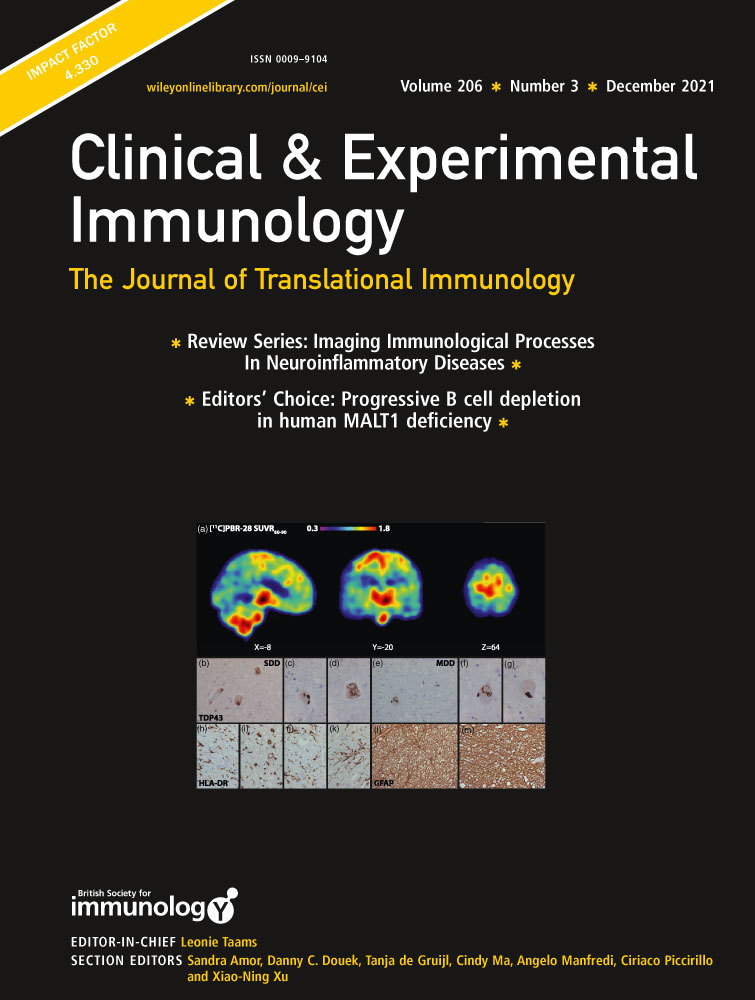β2-Glycoprotein I-dependent and -independent anticardiolipin antibody in non-obese diabetic (NOD) mice
Abstract
In the present study we investigate whether or not anticardiolipin antibody (aCL) is produced in NOD mice, which is a representative animal model of insulin-dependent diabetes mellitus (IDDM). We found that IgG class aCL appeared in 6.9% of non-diabetic NOD mice at weeks 5–15. The rates increased with age to 31.6% at weeks 16–25 and 71.9% at weeks 26–35. In addition, the titre and incidence of aCL were higher in diabetic mice than in non-diabetic mice. It was also found that aCL in NOD mice involved β2-glycoprotein I (β2-GPI)-dependent and -independent aCL, when β2-GPI was added to the aCL assay system. The IgG subclass of both β2-GPI-dependent and -independent aCL belonged exclusively to IgG2a. In addition, immunohistochemical studies revealed the predominant accumulation of IgG2a- or IgG3-positive B lymphocytes within insulitis. These results suggest that the autoimmunity in NOD mice may thus be associated with Th1 predominant immunological response. In conclusion, aCL with multiple antigenic specificity were produced in NOD mice along with the development of insulitis and diabetes. NOD mice should thus be added to the list of animal models possessing antiphospholipid antibody.




